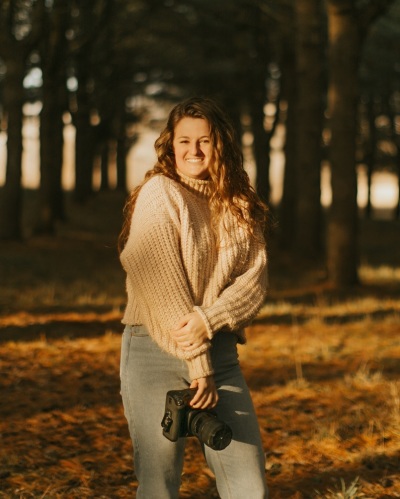Christian photographer can't decline gay weddings, federal court rules

A federal judge has ruled that a New York-based Christian photographer must provide services for same-sex wedding celebrations despite holding religious objections to gay marriage.
Judge Frank Geraci, Jr. of the U.S. District Court for the Western District of New York, rejected a request by Emilee Carpenter of the upstate New York-based Emilee Carpenter Photography to grant a preliminary injunction against a state anti-discrimination law.
In his ruling Monday, the Obama appointee concluded that “New York has a compelling interest in ensuring that individuals, without regard to sexual orientation, have equal access to publicly available goods and services, and that the Accommodation clause is narrowly tailored, as applied to Plaintiff, to serve that interest.”
“As a result, even if the Accommodation clause compels speech or expressive association in a manner that implicates Plaintiff’s free-speech and free-association interests, the provision survives strict scrutiny,” added Geraci.
“New York’s public accommodation laws are neutral. By only bringing an as-applied challenge, Plaintiff virtually concedes that the laws are facially neutral. … She raises no non-conclusory factual allegations that the laws were enacted with any kind of religious (or anti-religious) motivation.”
The Alliance Defending Freedom, a conservative legal nonprofit that has successfully argued religious liberty cases before the U.S. Supreme Court, represents Carpenter in her legal proceedings.
ADF Senior Counsel Jonathan Scruggs denounced the decision in a statement and vowed to appeal the ruling to the U.S. Court of Appeals for the 2nd Circuit.
“The court’s decision continues down a dangerous path of the government compelling artists to speak messages that violate their religious beliefs — or imposing steep fines, closing their businesses, or throwing them in jail,” Scruggs maintained.
Scruggs referenced Lorie Smith, the owner of the web design company 303 Creative. Smith is suing Colorado over a law that would require her to create websites celebrating gay marriages if she chose to expand her business to offer wedding website designs despite her objections to same-sex weddings.
In July, a three-judge panel of the U.S. Court of Appeals for the 10th Circuit ruled against Smith, concluding that she must create websites for weddings that conflict with her religious views if she offers weddings website design services. ADF has appealed that decision to the U.S. Supreme Court.
“Artists like Emilee and Lorie Smith in Colorado are protected under the Constitution to freely live and work according to their religious beliefs,” stated Scruggs.
“Emilee and Lorie happily serve all people; they just cannot promote messages which contradict their religious beliefs, including their views on marriage.”
In April, Carpenter sued New York Attorney General Letitia James; Johnathan J. Smith, interim commissioner of the New York State Division of Human Rights; and Weeden Wetmore, district attorney of Chemung County.
At issue were provisions in state law that prohibit “unlawful discriminatory practices ... because of” sexual orientation in “any place of public accommodation.” Since the law defines public accommodations as “retail ... establishments dealing with goods or services of any kind,” Carpenter concluded that the law applies to her business.
“… the Accommodations Clause forces Emilee to celebrate same-sex engagements or weddings and would require her to promote messages that violate her religious beliefs or require her to participate in religious ceremonies that violate her religious beliefs, something she cannot do,” stated the lawsuit.
“Likewise, the Publication Clause prohibits Emilee from asking prospective clients questions sufficient for her to learn whether they are seeking photography services celebrating same-sex engagements or weddings so that she can be honest with them about the photographs she does and does not create.”
The lawsuit expressed concern that “New York officials can force her business and her personallyto pay limitless damages and a $100,000 fine, require her to create artwork against her beliefs via court order, revoke her business license, and lock her up in jail for up to a year.”





















